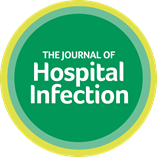Two documents that outline the Government’s ambitions and actions for the next 5 years, and their 20-year vision for tackling antimicrobial resistance (AMR) were published on 24 January 2019.
Contained and controlled - The UK’s 20-year vision for antimicrobial resistance
Tackling antimicrobial resistance 2019–2024 - The UK’s five-year national action plan
HIS wholeheartedly supports these initiatives, and in this blog we highlight the infection prevention and control (IPC) elements of the documents to reiterate that IPC is an essential element of the AMR strategy.
In the 20-year vision, there is an emphasis on three key ways of tackling AMR, namely:
- Reducing the need for, and unintentional exposure to, antimicrobials
- Optimising the use of antimicrobials
- Investing in innovation, supply and access of antimicrobials
In the shorter term, the 5-year plan sets out measures to drive progress towards the 20-year vision. These include targets to:
- Halve healthcare-associated Gram-negative blood stream infections
- Reduce the number of specific drug-resistant infections in humans by 10% by 2025
- Reduce UK antimicrobial use in humans by 15% by 2024
- Be able to report on the percentage of prescriptions supported by a diagnostic test or decision support tool by 2024
The plan recognises the steps that have been taken to improve IPC practices in animals and humans in the last 5 years via
- Regulations, such as the Health and Social Care Act, and related guidance, in England
- The training of health and social care workers in practices such as hand hygiene and aseptic technique
- The use of surveillance systems to recognise infections and target action to prevent spread
- The audit of practices to ensure policies and procedures are effective
- Vaccination of healthcare workers to protect patients from spread in healthcare settings;
- Recognising the importance of decontamination of medical devices
- Driving improvements in environmental cleaning
It also highlights recent improvements to professional education and training, and public engagement in IPC via
- Targeted interventions and education around hand hygiene
- Implementing the UK antimicrobial prescribing and stewardship competencies. National antimicrobial stewardship competencies for UK undergraduate healthcare professional education have been recently published in the JHI

![]()

The national action plan reinforces the UK Government’s commitment to these areas whilst also highlighting the importance of:
Preventing and managing infections by
- Ensuring that health and social care providers have the capacity, capability, physical environment and tools for effective IPC
- Strengthening the prevention and control of priority infections via WHO’s eight core components of IPC
- Adding Carbapenem-resistant Gram-negative infections to the list of notifiable diseases in existing laboratory reporting systems
- Continuing work to halve healthcare-associated Gram-negative BSIs, delivering a 25% reduction by 2021-2022, and 50% by 2023-2024 and also reducing the incidence of a specified set of drug-resistant infections by 10% by 2024
- Identifying where and how difficult-to-treat infections occur and acting to prevent them through surveillance, a systematic approach and better understanding
Improving the professional capacity and capability for IPC by
- Ensuring board-level leadership for combined IPC and AMS
- Assessing current and future workforce needs
- Facilitating and support an open and learning culture on AMR
- Adopting the IPC and care standards developed in Scotland as national standards in England
- Commissioning a review of the optimal facilities and infrastructure needed to reduce transmission and enhance IPC in all healthcare settings
Turning research into practice for effective IPC is also included, via
- Supporting research to better understand the routes and burden of transmission of drug-resistant infections and potential interventions to inform control measures and behaviour change initiatives
- Strengthening research commissioning so that interventions are translated in to evidence-based practice more quickly
- Assessing the average time taken for national guidelines to go from publication to implementation
Improving data management and promoting adherence to evidence-based guidance and interventions are also included.
The role of HIS
The 5-year plan references the role of professional bodies, the funding of research and the delivery of professional training. As a professional society representing healthcare and research professionals in IPC, we know the essential contribution that our members will make, and will work with you to achieve the government’s ambitious 20-year vision and 5-year action plan.
HIS will continue to facilitate the production of clinical guidelines, provide expert-led training, fund IPC research and help our members to be a recognised voice in directing IPC policy. To become more involved with the Society, and have your say, contact kay.miller@his.org.uk.
